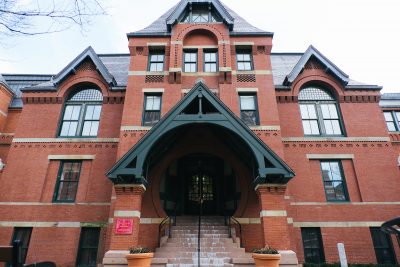
Boston University and other major research universities received a $12.3 million grant from the National Institute on Alcohol Abuse and Alcoholism to research the link between alcoholism and HIV or AIDS, according to a Tuesday press release from the Boston Medical Center.
The BU School of Medicine and School of Public Health, along with the University of California, San Francisco and Vanderbilt University, were among the recipients of the five-year grant. The grant was given based on each university’s merit, NIAAA spokesperson Erin Bryant said.
“They are awarded in a highly competitive process that involves careful review and evaluation of the merits of a potential study,” Bryant said. “Only the most promising receive funding.”
According to the press release, this grant was also given to the Uganda Russia Boston Alcohol Network for Alcohol Research Collaboration on HIV/AIDS, commonly known as URBAN ARCH, a member of HIAAA’s Consortiums for HIV/AIDS and Alcohol Research Translation initiative.
“This funding will allow the consortium to examine the consequences of alcohol use on comorbidities among people living with HIV including tuberculosis, cardiovascular disease and falls, so as to increase availability of treatments and improve outcomes,” the release stated.
Richard Saitz, chair of the Community Health Sciences Department at SPH, is one of the researchers awarded with the NIAAA grant. He said the grant will enhance the opportunity for research.
“This grant will allow us to answer important questions about how alcohol use, other drug use and HIV infection affect the risk for impaired physical function, frailty, falls and fractures and to develop and test an intervention to reduce the risk for those outcomes,” Saitz said.
The research on alcohol’s impact with HIV is especially important at this day and age because as the life expectancy of HIV carriers becomes longer, there are developing health problems among them, which are “often caused or affected by substance use,” Saitz said.
Now with the grant, BU researchers will study alcohol’s effect on other co-concurring conditions such as tuberculosis, he added.
“We will use these funds to hire research staff [who] will expand an existing cohort of people living with HIV infection to 400, assess them and follow them up annually,” Saitz said.
Several students said they are proud that the university received the grant for research that could impact the lives of thousands of people.
Sagar Nakrani, a fourth-year student in BU’s Seven-Year Liberal Arts/Medical Education Program, said tuberculosis in people with HIV and AIDS is an important issue to research.
“People with HIV are almost 30 times more likely to get tuberculosis, which is insane.” Nakrani said. “Alcohol alone can suppress your immune system and can increase the likelihood for someone to get sick so it’ll be interesting to see the additive effects of both HIV and alcohol.”
Anna Gamboa, a sophomore in the Questrom School of Business, said the research grant is an amazing opportunity for BU.
“A grant like this doesn’t come every day, so it’s great because this type of research affects so many people both in and out of college,” Gamboa said. “It’s awesome that BU gets to be a big part of that.”
Danny Flesch, a sophomore in the College of General Studies, also said the grant is an exciting attainment for BU, and he is proud of researchers at SPH and MED.
“I’m excited to see the things they’ll be able to accomplish [with the grant],” Flesch said.


















































































































